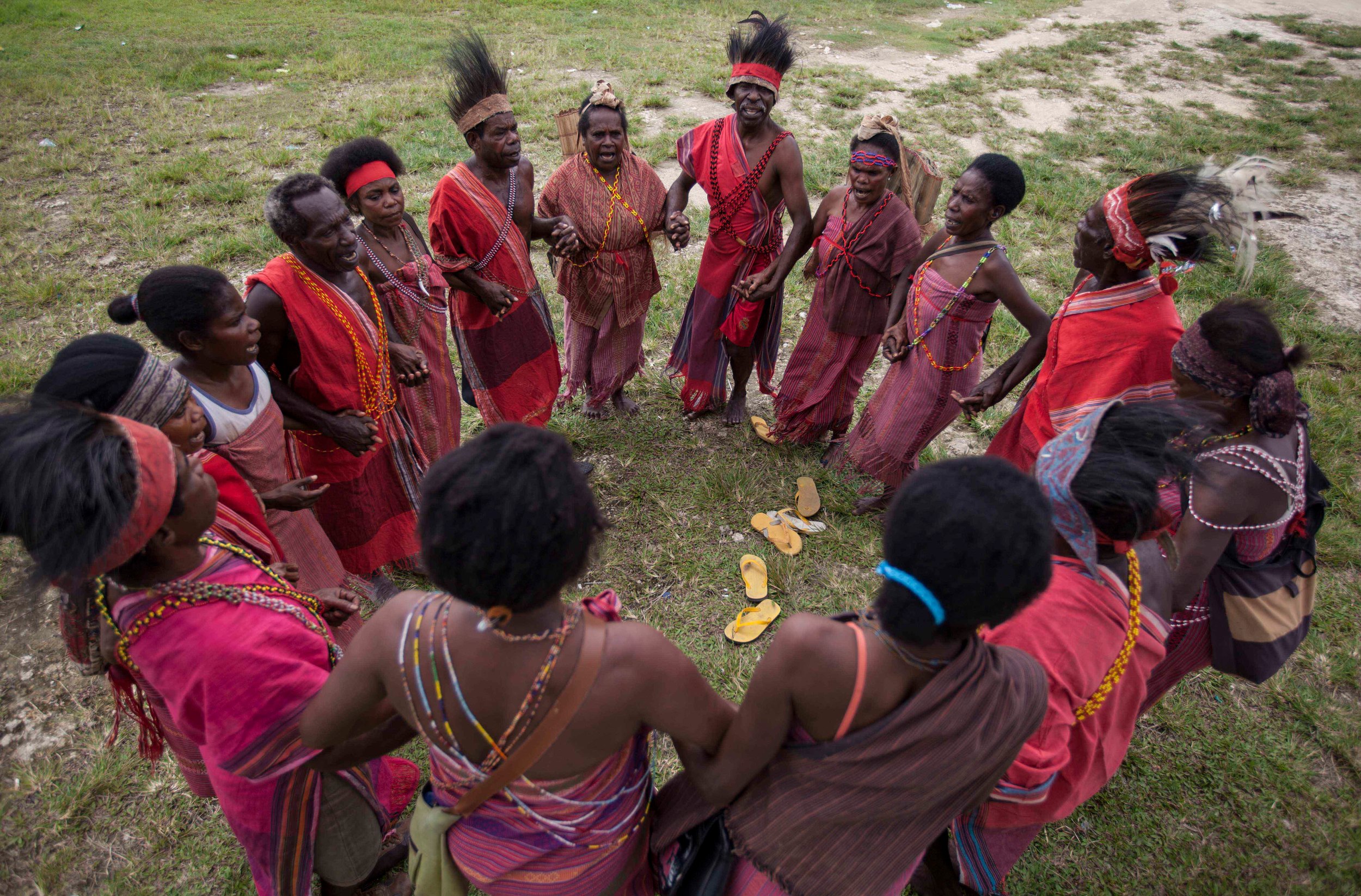The government of Indonesia has officially handed over control of a large swath of Papua’s rainforest to the area’s indigenous people, establishing Papua’s first Village Forest and giving the local community the power to stop the threat of deforestation from illegal logging, palm oil and pulpwood plantations.
It’s the kind of action that would’ve seemed unthinkable on the part of the government not so long ago. But in 2014, President Joko Widodo promised to give forest-dwelling communities control over 12.7 million hectares of forest estate through community forestry schemes including Village Forest areas.
The Sira-Manggroholo Village Forest is the first to begin the fulfillment of that promise in Papua.
Representatives of the Province of West Papua officially handed over Village Forest management rights of a 3,545-hectare slice of rainforest to the indigenous people of the Knasaimos landscape in West Papua’s Bird’s Head Peninsula at a ceremony last Friday.
Possession of those rights will allow the communities of Manggroholo and Sira villages, situated in South Sorong district, to protect and manage the rainforest as they see fit.
Those management rights, initially valid for 35 years, were presented to representatives of the two villages at an event in Teminabuan, the district capital. Traditional dances were performed to greet participants in the ceremony, which was attended by around sixty members of the roughly 400-strong forest community.
“This is a victory not just for we residents of Sira and Manggroholo villages, but for everyone, especially here in Papua where much forest remains. Forest protection is vital to secure the future of our communities,” said Fredrick Sagisolo, head of the Knasaimos Tribal Council, as quoted by a release from environmental NGO Greenpeace.
“Our target is to extend the right to Village Forest to every village in the Knasaimos traditional domain.”
During the 2000s, illegal loggers targeted merbau timber species in the Knasaimos area, and elsewhere in coastal Papua. Exported at a rate of 300,000 cubic meters per month from Papua to factories making luxury flooring in China, the trade earned Papuans who collaborated with the industry less than half a cent per dollar’s worth of flooring sold in the west.
Sira and Manggroholo village leaders say they have rejected recent advances from palm oil companies seeking to secure concession rights in their territories. Instead, they have been working with local NGO Bentara Papua and Greenpeace Indonesia to establish their own indigenous association to map the forests, conduct surveys, and find non-destructive ways to create products from the forest, such as resin.
“Greenpeace supports community-based forest management which recognizes sovereignty is in the hands of the local people. Papuan forests, increasingly succumbing to the expansion of oil palm, must be protected. The commitment of the Manggroholo-Sira community is an inspiration to others resisting deforestation in Papua,” said Kiki Taufik, Head of Greenpeace’s Indonesia Forests Campaign.





Reader Interactions